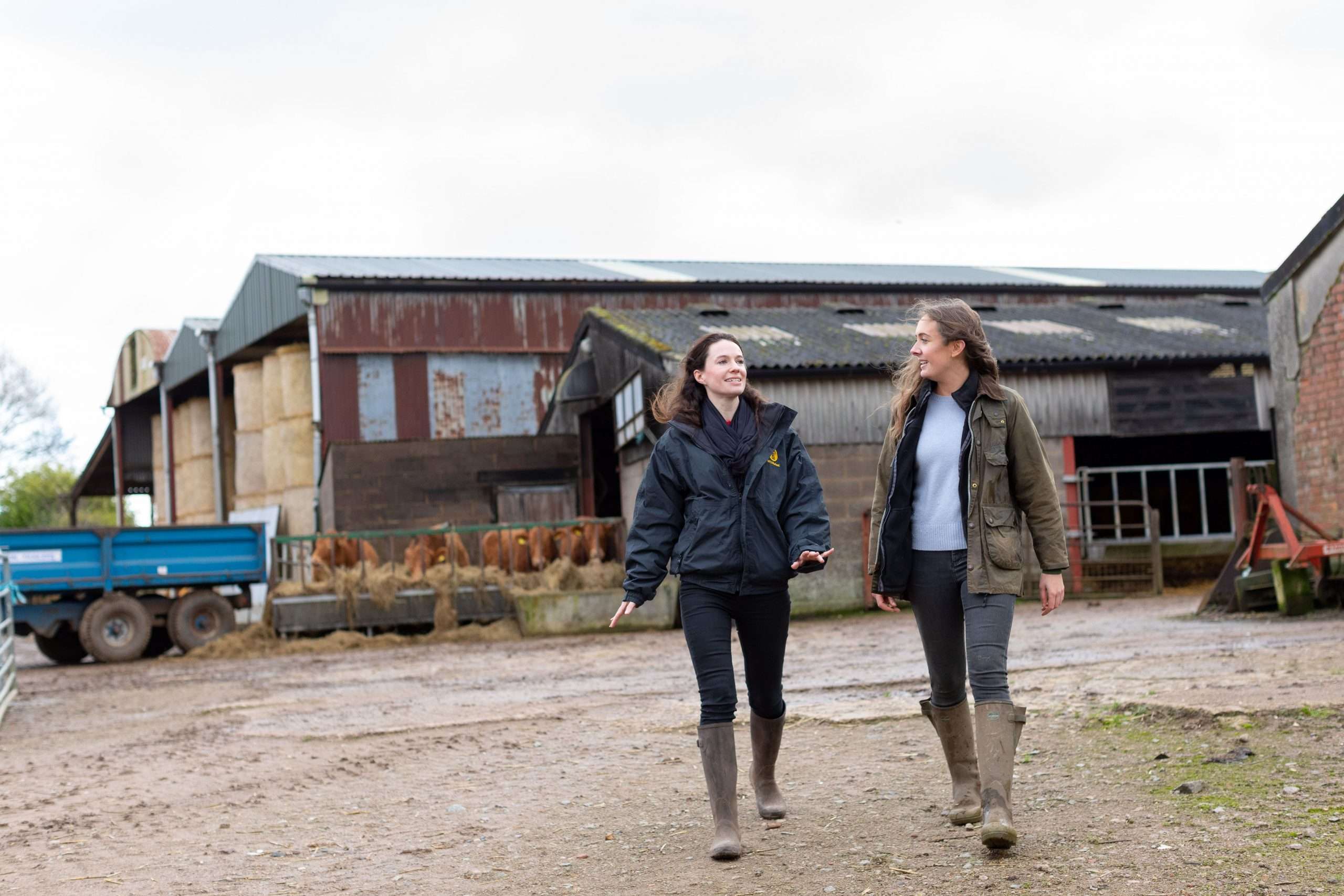Agriculture has been, and often still is, viewed as a traditionally male dominated sector. From operating machinery to shifting heavy loads, there are many connotations and stereotypes that have traditionally branded it a ‘man’s world’.
The fact that 55% of the UK’s agricultural workforce is female (Defra, 2017), is something I think commonly goes unnoticed. How – in the way that agriculture is traditionally perceived – can the majority of the workforce be female, yet the industry is still perceived as male dominated?
Where have all these women come from? And, where have all the men gone?
The simple truth is that women have always been involved in agriculture – but it’s their contribution that hasn’t always been recognised.
Including unpaid and family labour, official Government statistics indicate that women do represent 55% of the farming workforce. But when you look at who owns or manages the farm, this figure drops to around 16% (Defra, 2017).
Herein lies the reason for this blog, and the reason for my research project focusing upon the roles and recognition of women in UK agriculture. Women contribute a huge amount to agriculture, but their work often lacks recognition and largely fails to be met by research and support initiatives.
As part of a four year PhD project at the University of Nottingham, I will be conducting research to identify factors affecting women’s contribution, participation and leadership uptake within agriculture.
As a result, I plan to make industry and policy recommendations based upon its findings, which will enhance the economic, social and environmental sustainability of UK agriculture.
This includes making steps towards addressing traditional discourses and increasing the visibility and autonomy of women’s contributions.
The evidence shows…
While the position of women in farming has definitely improved over time, there is still much more that can be done.
Based on my review of existing international peer-reviewed academic literature and industry statistics, there are a few reasons why I think it is important for research in this area to be undertaken…
- Women play an important role in the economic strengthening and sustainability of the agricultural sector.
- As increasing pressure is placed upon farm income, women have proved to play a vital role in farm survival strategies including unpaid farm labour, off-farm work and diversification.
- Women are highly represented in fast-growing agricultural markets such as organic, local, direct-to-market, and farm tourism.
- Research beyond the sector also indicates the benefits of gender integrated workforces which include improved financial performance, social and ethical compliance, and an indirect positive effect upon firm value.
- The percentage of women in agriculture within developed countries continues to grow.
But…
- Very little research has been produced within developed countries where farm women are accounted as principle farm actors rather than a consumer or spouse.
- Rural gender studies identify a dominant traditional discourse shaping women’s participation, contribution and visibility within modern farming systems.
- The true extent of women’s work/contribution is often not fully recognised or accounted for.
- Significant barriers to women’s participation, visibility and leadership are illustrated to include succession, access to training and education, organisations, and policy.
- These barriers are largely specific to the agricultural industry and are not reported by women in other rural/family businesses.
- Global findings suggest female leaders are consistently under-represented throughout agricultural organisations, policy and on-farm decision making.
- According to Defra (2016) women represent 55% of family farm workers, however only represent 16% of farm holders and 17% of farm managers.
- Although helpful in many other ways, the qualitative/theoretical nature of existing research can make it hard to generalise findings or make actionable policy recommendations.
- Unlike many other developed countries where agricultural women face similar problems, the UK (with the exception of Scotland) is yet to implement any overarching strategies to break down social constructs or empower women to undertake leadership roles.
The aim of this research is to gain robust insights into an under-researched area which has the potential to contribute to the sustainability of the sector – and benefit all those within it.
These findings are based upon information that already exists on a global level, and the first stage of my research has been comparing similarities and differences throughout developed countries and then applying these findings to the UK.
These points illustrate that there is definitely a need to research the roles of women in UK farming, and this will only become more important as we begin to transition towards our own Domestic Agricultural Policy.
Follow my research…
Now is a fantastic time to be involved with agriculture, and I’m excited to begin raising the profile of this work and collaborating with like-minded individuals and organisations to put this topic firmly on the agenda.
You can follow my research progress and keep up to date with insights at www.farmherbloggs.co.uk and on social media:
Instagram: https://www.instagram.com/farmher_bloggs/
Twitter: https://twitter.com/WomenInAgUK
Linked In: https://www.linkedin.com/in/chloe-dunne-323204122/
You can also subscribe to my blog mailing list for updates and ways to get involved.

